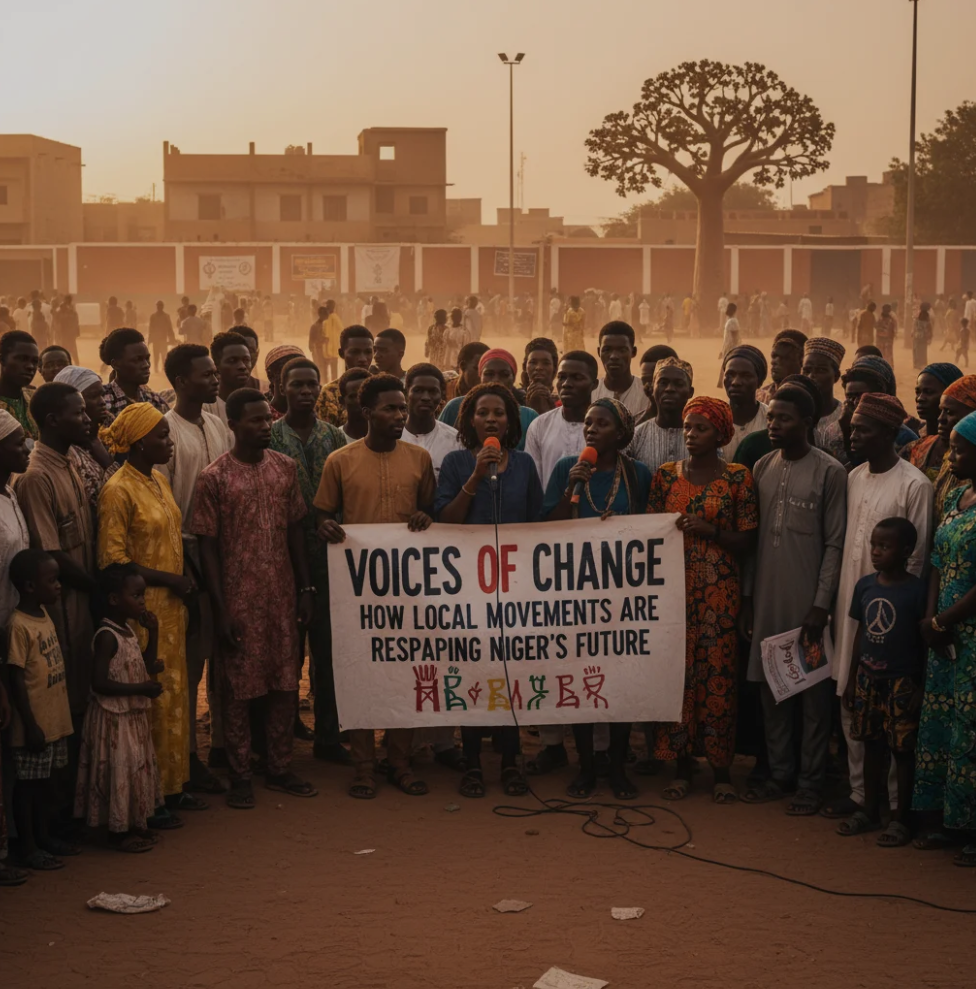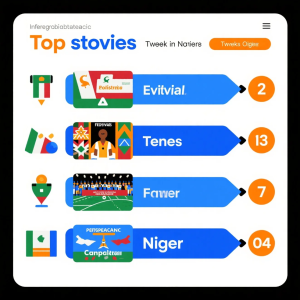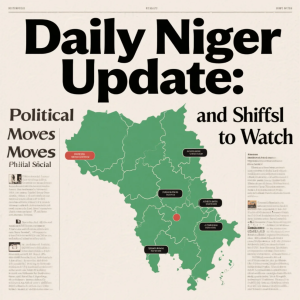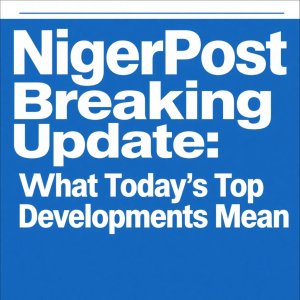Across Niger, change isn’t only coming from national policies or international aid programs — it’s rising from the ground up. Local communities, youth groups, women’s cooperatives, and grassroots organizations are redefining what progress means in one of West Africa’s most resilient nations.
Amid challenges such as climate pressure, limited resources, and regional instability, Niger’s citizens are proving that sustainable development begins with local voices.
🌍 1. From the Ground Up: Community-Led Transformation
In villages and towns across Niger, people are organizing around shared goals — better schools, cleaner water, and more opportunities for youth.
Local initiatives, often small in scale, are creating big impact. For example, community farming cooperatives in regions like Zinder and Maradi are using collective savings groups and traditional knowledge to improve crop yields and food security.
These movements succeed because they are locally owned. Rather than relying on distant institutions, they build on trust, cooperation, and cultural understanding.
“Our community understands its needs better than anyone else,” says Aïssata, a women’s group leader in Dosso. “When we organize together, we solve problems faster and in ways that fit our lives.”
🌾 2. Youth Movements: The Power of a New Generation
Nearly two-thirds of Niger’s population is under 25. This young majority is fast becoming the driving force behind innovation, education, and social reform.
Local youth collectives are using digital tools, radio programs, and volunteer networks to raise awareness about issues like civic participation, gender equality, and entrepreneurship.
One standout example is the “Jeunes pour le Changement” initiative, which trains young leaders to engage in community decision-making and create small social enterprises.
In a nation where unemployment is high, these youth-led projects are not just social — they’re economic lifelines.
💧 3. Climate Resilience and Environmental Action
Niger faces some of the harshest climate conditions in the Sahel. But local movements are leading innovative responses — from reforestation efforts to sustainable water management.
Projects like the Great Green Wall initiative involve thousands of villagers planting trees to combat desertification and restore soil fertility. Meanwhile, women’s associations in Tillabéri are promoting solar cookstoves to reduce deforestation and improve household health.
These are not just environmental acts; they’re expressions of sovereignty and survival — proof that Nigeriens can protect their future with their own hands.
🤝 4. Women Leading the Way
Women’s cooperatives have become a cornerstone of Niger’s transformation. Across the country, groups of women are leading efforts in agriculture, trade, and health awareness.
Their work goes beyond economics — it strengthens social cohesion and family wellbeing. Initiatives like microcredit programs or community savings circles have allowed women to invest in local schools, health centers, and small businesses.
As one cooperative leader from Tahoua explained:
“When women earn and decide together, everyone in the community benefits.”
🕊️ 5. Collaboration and Hope Amid Challenges
While Niger faces major challenges — from climate shocks to security concerns — the resilience of its people is unmatched.
Local NGOs, village committees, and traditional leaders are finding common ground, building trust where top-down systems often fall short.
International partners are now realizing that the most lasting change happens when local movements take the lead — with external support acting as a partner, not a director.
🌟 Conclusion: The Power of Local Voices
Niger’s story is no longer just one of struggle — it’s one of courage, cooperation, and creativity.
From grassroots climate actions to youth innovation, local movements are reshaping the nation’s future one community at a time.
As these voices grow louder and more connected, they offer not only hope for Niger — but a blueprint for how local leadership can drive national transformation across Africa.




